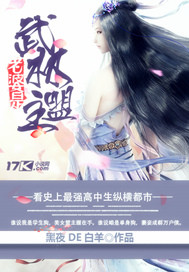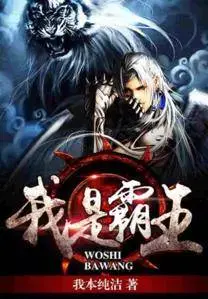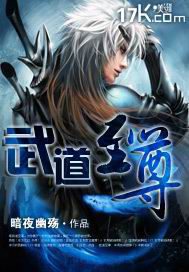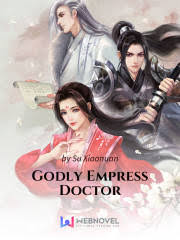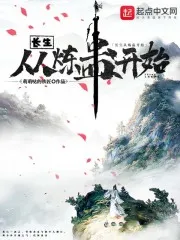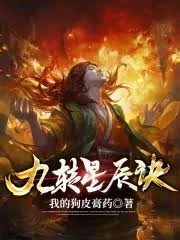The Story in 3 Sentences
A seemingly ordinary man awakens to a world of immortal cultivators and martial sects, only to discover his quiet, beautiful wife is secretly the supreme leader of the entire Martial Alliance — a revelation that flips his mundane life into a whirlwind of hidden power, political intrigue, and divine-level responsibilities he never asked for.
As he stumbles through this new reality — pretending to be clueless while secretly training, dodging assassination attempts, and accidentally charming powerful female sect leaders — he must navigate the razor-thin line between playing the oblivious husband and stepping into his own destiny as a force that could reshape the heavens.
What begins as a comedic misunderstanding spirals into an epic clash of ancient clans, heavenly tribulations, and soul-deep romance, culminating in a finale where love, loyalty, and ludicrous power collide to redefine the very laws of cultivation itself.
Why It Stands Out
1. The Husband Who Doesn’t Know He’s the Final Boss
It’s not every day you marry the most feared woman in the cultivation world and still think you’re the one bringing home the groceries. The novel weaponizes dramatic irony like a divine artifact — every time the protagonist shrugs off a world-shaking event as “just another weird Tuesday,” readers clutch their chests laughing while screaming internally. His “clueless husband” act becomes a survival tactic, a comedic shield, and eventually, a terrifyingly effective disguise that lets him dismantle empires without anyone realizing he’s the architect. The gap between his self-perception and his actual influence is the engine that drives both the humor and the heart-stopping tension.
2. Romance That Carries the Weight of Heaven
Forget shallow harem tropes — here, every romantic thread is woven into the fabric of cosmic stakes. The wife isn’t just powerful; she’s burdened by millennia of solitude, political warfare, and the crushing weight of leadership. Their love story isn’t about conquest — it’s about mutual salvation. He grounds her; she elevates him. Even side pairings carry emotional gravity, with each woman tied to a faction, a prophecy, or a personal vendetta that forces the protagonist to grow beyond charm into genuine emotional intelligence. The romance doesn’t distract from the plot — it fuels it, turning pillow talk into treaty negotiations and shared baths into battlefield strategy sessions.
3. Power Scaling With Personality
In a genre drowning in “breakthrough montage” filler, this novel makes every power-up feel earned, personal, and often hilarious. Whether he’s accidentally absorbing a heavenly tribulation meant for his wife, or stumbling into a forbidden technique while trying to fix a leaky roof, his growth is chaotic, organic, and deeply tied to his relationships. The cultivation system isn’t just levels and qi — it’s emotional resonance, marital harmony, and comedic timing. His ultimate techniques? Named after household chores. His strongest weapon? The wedding ring she gave him. It’s xianxia with soul, sass, and surprising sincerity.
Characters That Leave a Mark
There’s Lin Qingxue – the icy, peerless Martial Alliance Head whose public demeanor hides a fiercely protective, secretly romantic soul that melts only for her “useless” husband, turning every cold command into a veiled love letter written in sword intent.
You’ll meet Su Wan’er, who starts as a rival sect heiress sent to spy on the couple but becomes the chaotic wildcard whose explosive temper, hidden trauma, and unexpected loyalty force the protagonist to confront the cost of peace — and the value of forgiveness.
And Elder Mo Tianji? They’re the one who serves as the Alliance’s shadow strategist, a centuries-old fox spirit in human form whose dry wit and cryptic prophecies guide the protagonist through political minefields while secretly betting celestial coins on how long it’ll take him to realize his own power.
The Flaws Fans Debate
Some readers feel the harem elements dilute the central romance, arguing that side heroines occasionally slip into trope-heavy roles instead of fully fleshed-out characters with independent arcs.
The pacing in mid-sections occasionally drags when political maneuvering overtakes action, with chapters dedicated to alliance meetings or sect diplomacy that test the patience of readers craving more cultivation clashes or romantic sparks.
A vocal minority critiques the protagonist’s “cluelessness” as stretched too thin — what begins as charming comedic ignorance sometimes feels artificially prolonged, delaying his inevitable power reveal beyond believable limits.
Must-Experience Arcs
Ch. 1–87: The Awakening Arc – He thinks he married a quiet beauty. She knows she married a wildcard. The first 87 chapters masterfully set the stage: domestic bliss shattered by assassins, hidden identities revealed in teacup tremors, and the first accidental display of power that makes the heavens pause — all while he insists “honey, you’re overreacting.”
Ch. 612–893: The Shattered Moon Accord – When a celestial faction declares war on the Martial Alliance, the protagonist is forced out of his “clueless husband” shell. He brokers peace through absurdity — challenging warlords to cooking duels, turning battlefields into banquet halls, and using marital squabbles as diplomatic cover. It’s where comedy becomes strategy, and love becomes leverage.
Ch. 1680–1829: The Heaven’s Wedding Vow – The final arc isn’t about defeating a villain — it’s about rewriting cosmic law. With the heavens themselves trying to tear them apart, the couple’s bond becomes the axis of reality. Their final technique? A dual-cultivation move forged from wedding vows, turning their love into a force that even primordial gods can’t unravel. Tears. Cheers. Absolute chills.
Killer Quotes
“Power is not in the sword, but in the hand that chooses not to swing it.”
“They called her the Ice Sovereign. I called her ‘honey’ — and somehow, that’s what saved the world.”
“A true cultivator doesn’t break limits. He redefines them — preferably while making breakfast.”
“Love isn’t weakness. It’s the only technique that never backfires.”
“The heavens demand obedience. My wife demands I take out the trash. Guess which one I fear more?”
Cultural Impact
Fan artists flooded DeviantArt and Pixiv with “domestic god emperor” memes — him vacuuming in robes, her signing execution orders while he clips her nails.
“Husband, you’re being dramatic again” became a viral catchphrase across Twitter and TikTok, used anytime someone overreacts to minor chaos.
The “Wedding Ring Parry” — a move where he blocks a killing blow using only his wedding band — inspired real-life couples to engrave cultivation runes on their rings as inside jokes.
Discord servers exploded with “Which Sect Leader Would You Marry?” polls, sparking week-long debates and shipping wars that outlasted actual novel arcs.
Fanfiction.net saw a 300% surge in “clueless OP husband” tropes across xianxia, with authors openly citing this novel as the blueprint.
Final Verdict
Start Here If You Want:
A romantic comedy wrapped in divine-level cultivation chaos where the biggest power move is pretending you don’t know you’re invincible.
To see a harem done with emotional stakes — where every new woman changes the game, not just the bed count.
Laughter that punches you in the gut, tears that sneak up on you, and a finale that turns marital love into a cosmological event.
Study If You Love:
Narrative irony as a structural device — how sustained dramatic irony can drive both comedy and character development across 1800+ chapters.
The subversion of xianxia tropes — taking the “overpowered husband” and “cold female lead” clichés and rebuilding them with psychological depth and relational authenticity.
Genre-blending mastery — how to balance slapstick, political thriller, romantic drama, and cosmic fantasy without letting any single tone dominate.
Avoid If You Prefer:
Strictly serious, grimdark cultivation stories with zero humor or domestic interludes.
Linear, predictable power progression — here, breakthroughs come from emotional epiphanies, marital spats, or kitchen accidents.
Minimal romance or anti-harem narratives — while emotionally grounded, the romantic entanglements are central, frequent, and occasionally flamboyant.
